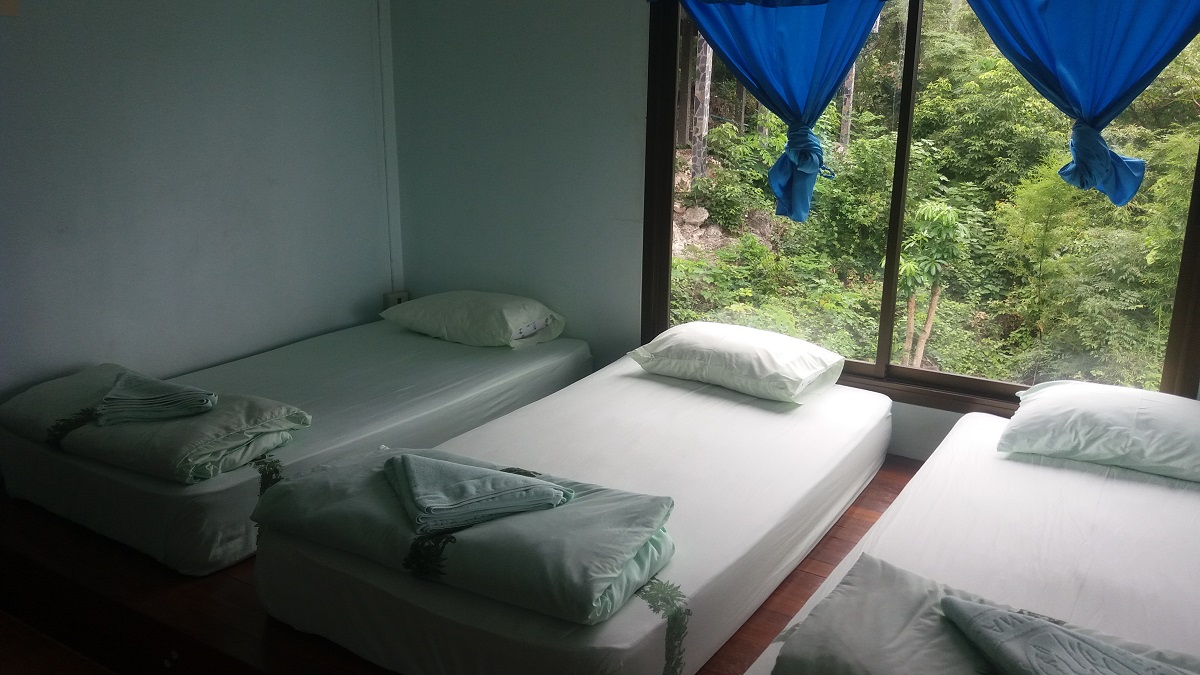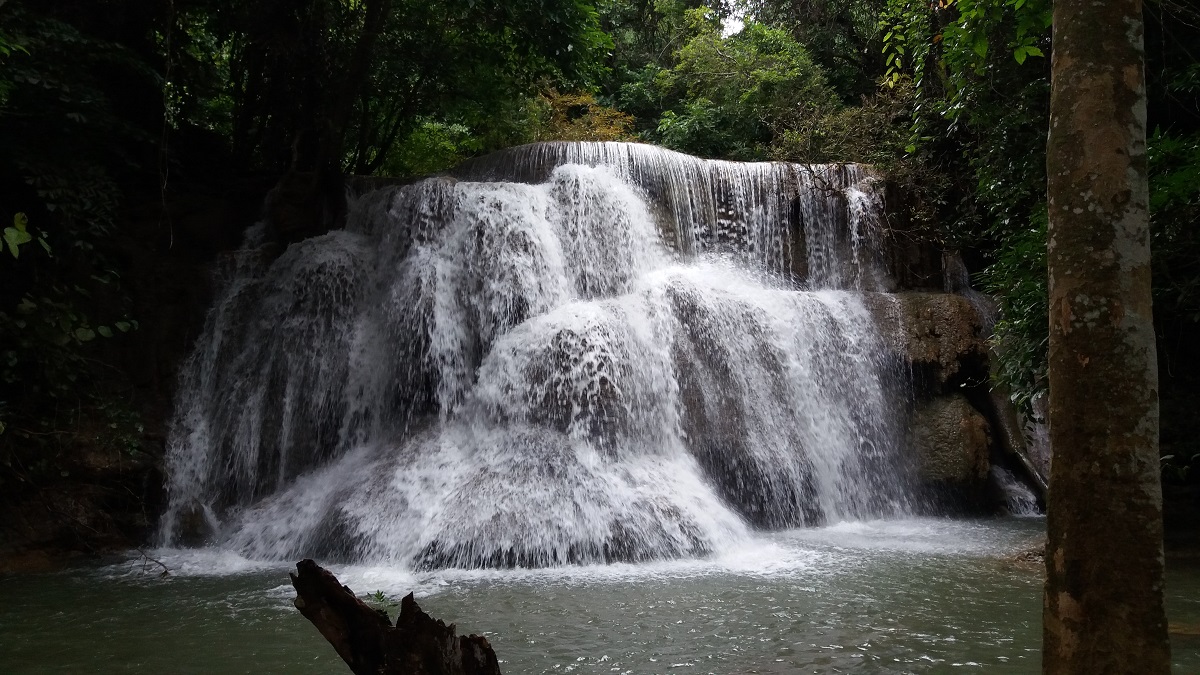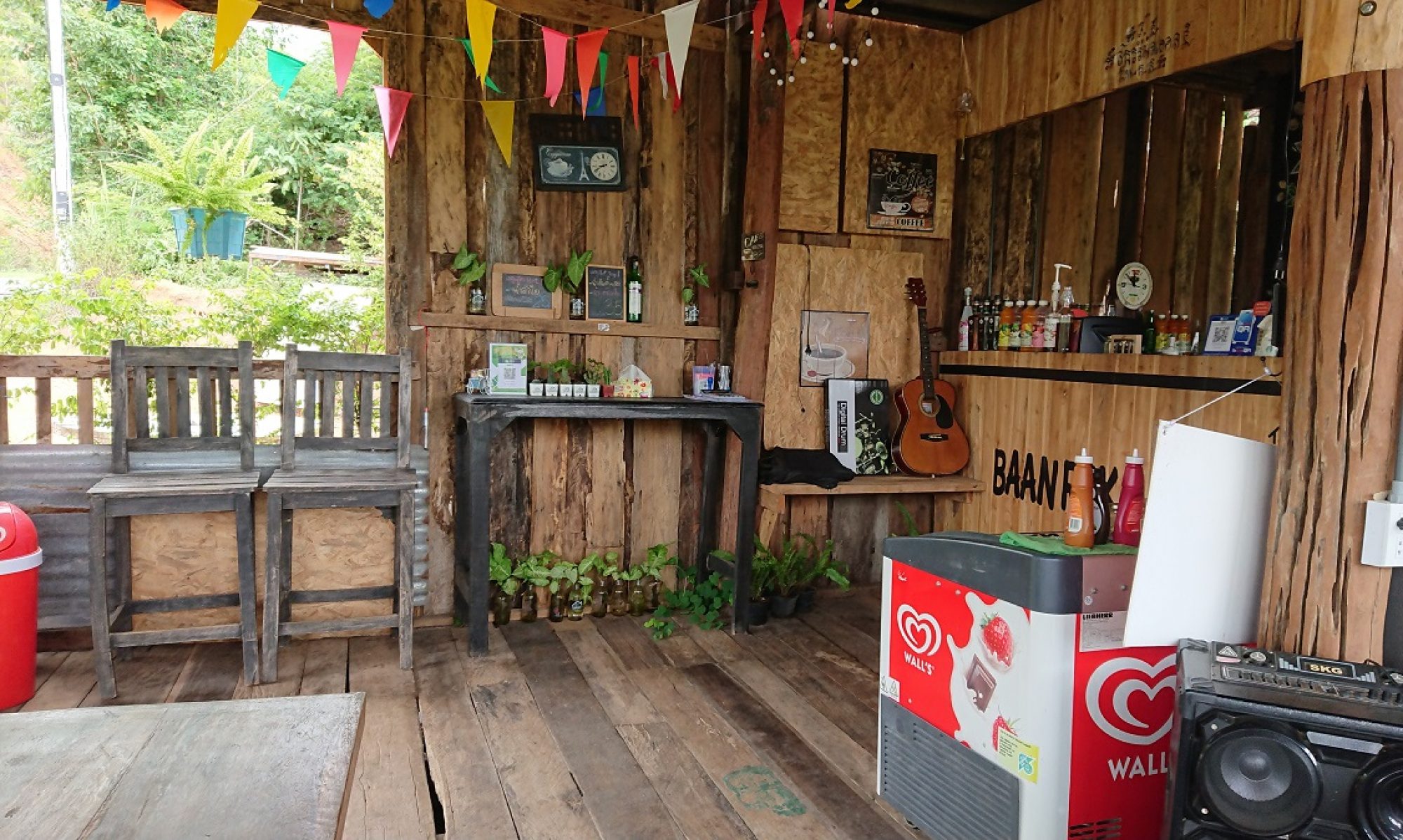My Dad has been working in the UK for the last eighteen months.
Almost Unspoilt
Although not unknown Koh Kood is more difficult to get to, which explains its reputation as one of Thailand’s last unspoiled island getaways.
Farmstays
A lake surrounded by mountains. Peace, tranquility and healthy living at Phuu Fa Nam Organic Farm.
Tucked away on the back roads is an organic farmstay in Suphanburi. A working farm supplying organic produce to markets in Bangkok.

Life in Britain test
lifeintheuktestweb.co.uk
Apprenticeships
Each formal apprenticeship has an equivalent eductional level. Intermediate level 2 is the equivalent of GCSE. Advanced level 3 A Levels, Higher 4,5,6,and 7 are equivalent to a Foundation degree and the Degree 6 and 7 equates to a Bachelors or Masters degree. Some apprenticeships may also give you an additional qualification, such as a diploma.
Higher apprenticeships (levels 4-5) are regulated by Ofsted and the Office for Students. Degree apprenticeships (levels 6-7) are regulated by the Office for Students who follow guidance from QAA (Quality Assurance Agency) – the UK’s quality body for higher education.
Degree apprenticeships offer a win:win for everyone. Universities expand their student population and revenue streams. Employers build a pipeline of skilled talent within their business. And students get the opportunity to gain degree-level qualifications without paying substantial university fees – as is the case with traditional undergraduate degrees.
So how are degree apprenticeships funded?
The quick answer is: usually by the employer – but there is loads of government funding available for degree apprenticeships. Smaller businesses might see up to 95% of costs covered.
They may take the form of general IT or digital apprenticeships that allow you to focus on a particular area, such as:
- artificial intelligence (AI)
- computer programming, including coding
- computer science
- information and communications technology (ICT)
- networking
- software development
- software engineering.
The programme may then allow you to specialise even further. For example, computer science degree apprenticeships typically allow you to develop skills as a programmer while you decide whether to go into data analysis, tech consulting or forensics.
If you have a passion for gaming and would be interested in game design and development apprenticeships, read more about video game careers.
There are also apprenticeships for those considering cyber security training.
What does an IT apprenticeship involve?
An apprentice should be employed for at least 30 hours per week where they’ll complete a minimum of 12 months training. Most IT and digital apprenticeships are longer and can last for up to 24 months.
Apprentices undertake training both on and off the job, but all apprentices must be given a minimum 20% of off-the-job training to meet the requirements of the programme. This training must be structured, reviewed and most importantly help the apprentice achieve the knowledge, skills and behaviours included in the apprenticeship standard.
Off-the-job training must be ‘away’ from the workplace but does not have to be ‘outside’ the workplace – so it can include a range of methods such as role-play, online learning, job shadowing or industry visits.
At the end of the training period, the apprentice takes an end-point assessment managed by an independent assessor. The IT and digital end-point assessments include the collection of key pieces of work in a portfolio, an employer’s reference, a project and finally an interview with the assessor. At the end of the process the apprentice is graded.
The BCS Digital IT Apprenticeship Standards, set out by BCS, The Chartered Institute for IT, provide more information and cover key IT and digital apprenticeship roles at Levels 3 and 4, including:
- artificial intelligence (AI) data specialist
- cyber security technologist
- data analyst
- data technician
- digital marketer
- infrastructure technician
- IT technical salesperson
- network engineer
- software developer
- software tester.
If you complete an IT/digital apprenticeship through BCS, you can apply for recognition of attaining the professional RITTech standard and get added to their register. Registration lasts for three years, and you’ll also have one free year as a BCS Associate member.
How much will I be paid?
All apprentices are paid the National Minimum Wage (NMW), which currently stands at £5.28 per hour for apprentices under 19, and those aged over 19 who are in their first year (as of April 2023).
If you’re over 19 and have completed the first year of your apprenticeship you must be paid the minimum wage rate for your age.
To check apprentice rates and the NMW, visit GOV.UK – Become an apprentice.
As an apprentice you’ll be paid for your normal working hours, as well as for any training that is part of your scheme. You’re entitled to 20 days’ paid holiday per year, plus bank holidays.
Salaries are determined by individual employers. For instance, you could earn £21,220 plus benefits as part of Barclays’ four-year Cyber and Security Degree Apprenticeship. Accenture pay apprentices on their two-year Masters-level Digital and Technology Solutions Apprenticeship programme a starting salary of between £25,700 and £29,480, depending on your level of experience.
For detailed information about how apprenticeships work, pay rates, entry requirements and the difference between an apprenticeship and an internship, see what is an apprenticeship?
How do I apply?
Most applications are made online by completing an application form, although some methods may vary so check with the organisation first.
Apply for apprenticeships as you would for a job. Thoroughly research the company that you’re interested in and ensure your CV is up to date. You’ll need to tailor your application to fit the role by including evidence of relevant experience and examples of when you’ve demonstrated the required competencies.
For IT and digital roles, you could provide examples of any programming you’ve done or systems you’ve built – either in your spare time or as part of a university project.
Some organisations may ask you to sit situational judgement, numerical and psychometric tests as part of their initial recruitment process. You may then need to attend an assessment centre or undergo telephone or video interviews before reaching the final interview stage.
Read more about how to apply for an apprenticeship.
Find out more
- Explore IT graduate jobs.
- Consider studying relevant IT courses.
- Get an overview of the UK’s IT industry.
Thai ID
I have turned sixteen and need to apply for a new ID.
KU Beef
I had almost given up on local beef until a chance encounter with an unreasonably tender sirloin steak at the Camp Cafe in Kanchanaburi gave us every reason to drive down to Kamphaeng Saen.
Kamphaeng Saen is home to the Kasetsart Agricultural University where they breed a sell KU Beef. You can buy frozen meat retail from their shop on the campus as well as in bulk. Although for some cuts you need to pre-order.
There is also an onsite Steak House for potential clients who might still be a little sceptical about the quality of what is the best beef I have found in Thailand.
The next step
150 pounds Isle of Man or Southampton selt.languagecert.org/?exam=6B5AB3D856F44D04A5928D33A1631409&country=50EB9A019EAB4678AE83D2DA8A4EC680
We booked with Trinty College London and did the test in Portsmouth. Relatively painless besides the exam fee and the revision packet I bought which was not used.
Twenty four hours later we got an email to say it was a C pass and we wait for the certificate to be validated and sent. Next will be the visa application and hopefully another two and a half years to address grammar mistakes.
Got of to a bad start as usual. I searched for:
Further Leave to Remain visa in the UK
which did take me to the government website. But not the information I needed. After a few more dead ends I finaly got to where I wanted to be.
https://www.gov.uk/uk-family-visa/partner-spouse
To apply both partners need to be 18 or over and must intend to live together permanently in the UK. You must be able to prove you’re in a civil partnership or marriage that’s recognised in the UK or that you’ve been living together in a relationship for at least 2 years when you apply.
You also need to prove you:
• have a good knowledge of English
• can financially support yourself and your dependants
To prove your relationship send evidence that:
• confirms your relationship with your partner – for example, that you live together, share expenses or are married or in a civil partnership
• is less than 4 years old
Documents from the government, a bank, landlord, utility provider, or a medical professional. Things like:
• a marriage certificate or civil partnership certificate
• a tenancy agreement, utility bills or council tax bills confirming that you live at the same address or pay bills together
• a bank statement from a joint bank account, or confirming that you live at the same address
• a letter from your doctor or dentist confirming that you live at the same address
If you do not have any evidence that meets this criteria, there is other evidence you can provide instead. However, it’s less likely that you’ll be given a visa in this case.
You can stay in the UK for 2 years and 9 months on this visa.
You’ll need to prepare information and documents to provide with your application which you submit online whilst in the UK.
You can add children to your application as dependants if they are under 18 when you apply, or were under 18 when they were first granted leave and they do not live an independent life. A child is living an independent life if, for example, they’ve left home, got married and had children.
The earliest you can apply to settle in the UK (called ‘indefinite leave to remain’) is after you’ve lived in the UK for 5 years continuously on a family visa as a partner.
Huay Mae Khamin Waterfalls
One look at the car park at Erawan, told me all I needed to know. So we headed for Huay Mae Khamin in the Khuean Srinagarindra National Park.

Despite being popular with locals it is relatively quiet during the week. Weekends and holidays are busy and best avoided. There is plenty of accommodation ranging from camping, to houses which cater for groups as well as chalets.

The chalets are comfortable and well appointed

Offering brilliant views of the Srinagarindra dam lake.

Another of those special places to visit in Thailand
